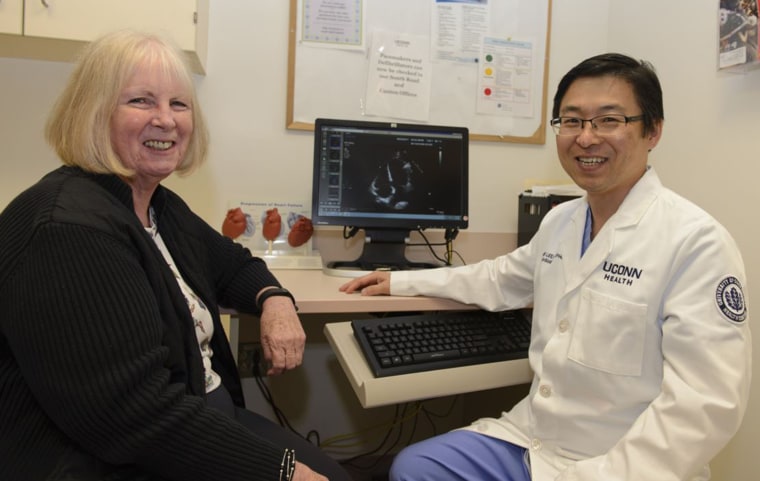For more than a year Patricia Lauder had been using her Fitbit to track her steps. But this January, the device did more for her health than simply encourage exercise — it saved her life.
“I was grateful,” Lauder, 73, of Harwinton, Connecticut, told TODAY. “I knew I was sick. But those little details helped me have a better understanding and explain what the problem was.”
In early January, Lauder was battling a sinus infection, which seemed to cause shortness of breath. She visited the doctor who ran some tests to see if she had pneumonia. The doctor didn’t see anything on the X-rays and Lauder began wondering if she needed to work out more.
“I knew I was out of shape but I didn’t think I was that out of shape,” she said.

RELATED: Fitness trackers: Do they count steps, calories accurately?
But then she looked at her resting heart rate on her Fitbit and spotted an odd trend. Starting at 68 beats per minute, her heart rate seemed to be increasing by five points every day. While she felt worried, she didn’t panic until it reached 140 beats per minute. According to the American Heart Association, a normal resting heart rate for an adult ranges from 60 to 100 beats per minute.
Scared, Lauder called an ambulance, which took her to the UConn John Dempsey Hospital.
“It got to the point where I realized I can’t take this any further,” she said. “I was going downhill fast.”
When she arrived, she looked blue because her oxygen levels were so low. Doctors performed a CT scan and discovered blood clots in her lungs, which is also known as a pulmonary embolism.
Dr. JuYong Lee, who treated her, said that about 25 percent of patients with pulmonary embolisms experience sudden death.
“The patient might not feel any symptoms depending on the size of the clot and where it is,” he said.

RELATED: Fitness band frustration: Users complain of weight gain with trackers
Lee treated her with clot-busting drugs and a catheter in her lungs. Within a day, the clots went away and Lauder returned home after only a few days in the hospital.
“If she had not looked at her heart rate maybe she would have neglected her symptoms and not come to the hospital,” Lee said. “She may have died if she hadn’t checked her Fitbit.”
Lee has continued asking Lauder to use her Fitbit to monitor her health. Her blood pressure remained erratic and he hoped the data from the device would help him better track it.
“The Fitbit tends to give a little more medical information to the physician or patient,” he said. “I think it is very helpful."